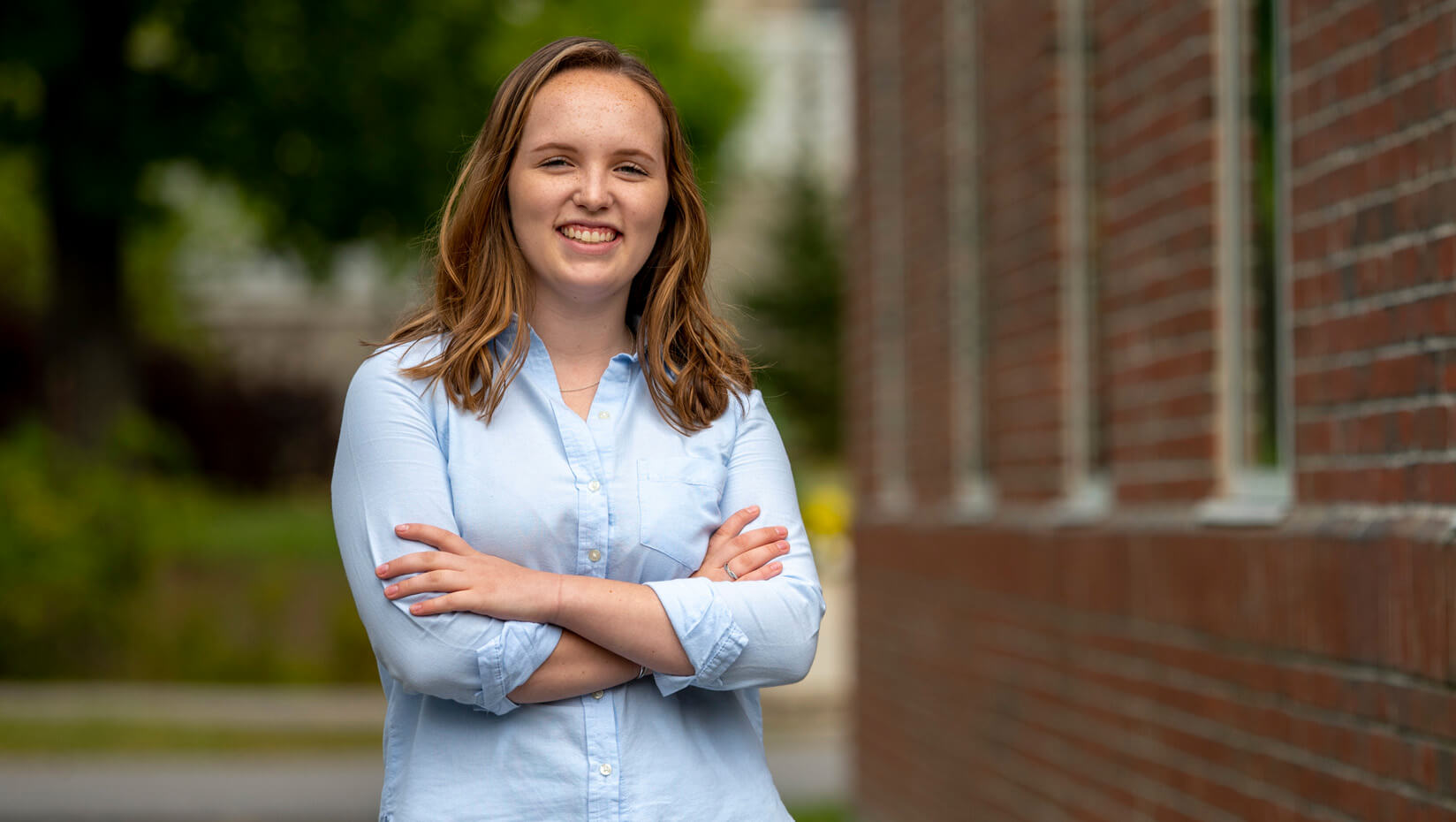
Zoe Vittum: Early college puts high school student one step ahead in her career goals
Balancing a variety of classes is challenging — especially across three different schools, and with a job on the side.
Zoe Vittum, a junior at Brewer High School, takes classes there as well as through the Early College program at the University of Maine and its equivalent at Husson University. After finishing the majority of her high school coursework needed for graduation, she looked for a new challenge. One of her friends worked at the UMaine Advanced Manufacturing Center (AMC) during a gap year, and recommended she apply. So she did — and worked there full time this summer. Now she works part time to fit the job into her busy academic schedule.
At her high school, Vittum is a member of the FIRST Robotics Team, part of the international organization FIRST (For Inspiration and Recognition of Science and Technology) that works to engage and inspire youth to participate in science. And she’s had an interest in the subject for as long as she can remember, which really took off when she joined the high school team as an eighth grader.
She’s found her experience with the team ties in closely with the design and robotics work at AMC, where she’s worked primarily on two projects.
One involved a partnership between AMC and Maine Manufacturing Extension Partnership (Maine MEP) to help Saco, Maine-based Xuron Corp. improve its most popular product, a small flush-cutting tool. AMC’s work improved manufacturing efficiency and product quality, especially by designing and manufacturing new grinding fixtures to reduce the process from using three machines to two. Vittum was involved with much of the design work and manufacturing components for the fixturing.
The other project is in more initial stages of research and development, and involves an automated system for drying kelp to produce a more consistent and higher-quality product. UMaine faculty members Balunkeswar (Balu) Nayak, an associate professor of food processing in the School of Food and Agriculture, and Peter van Walsum, an associate professor in chemical and biological engineering and the Forest Bioproducts Research Institute, are leading the research. Vittum did the majority of the design and manufacturing test parts.
Vittum plans to maintain this balance for the next two years to take advantage of the opportunity to take free college courses before graduating with her class. She plans to enroll at UMaine with double degrees in biomedical engineering and mechanical engineering, with a minor in robotics.
“I think it’s a great opportunity to be able to start taking classes within the scope of my major in high school to see if that’s what I want to do,” says Vittum. “It’s an opportunity that many students don’t have, which can end up costing them more time in college.”
Outside of school she plays softball, and mentors for the FIRST Lego League, a program for youth in grades K–4.
